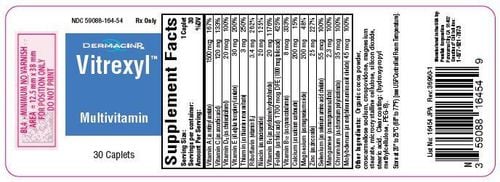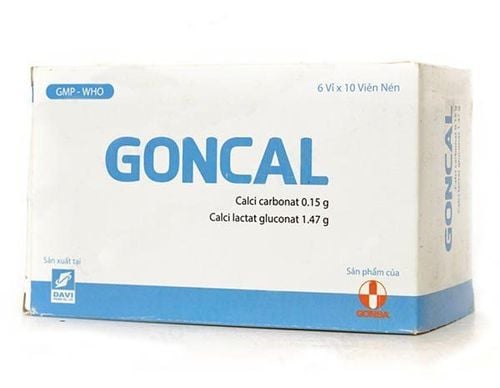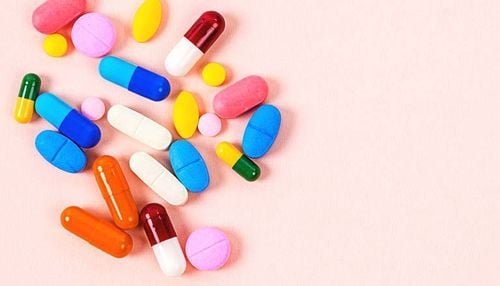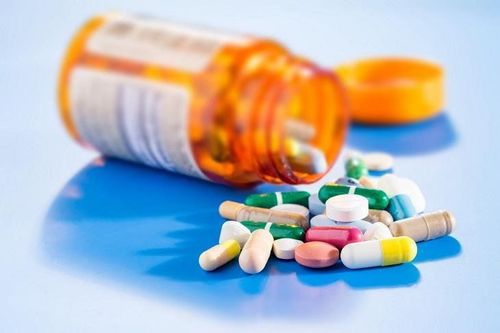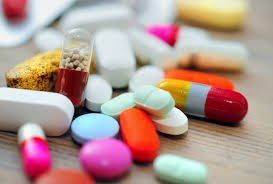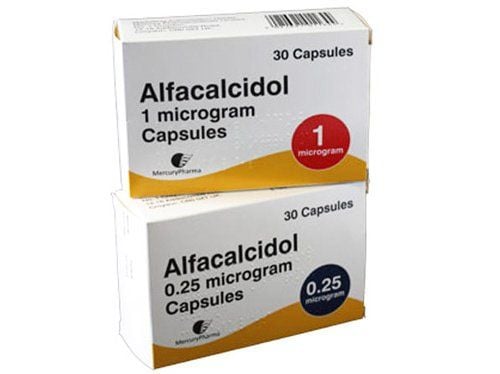This is an automatically translated article.
Letbaby drug is a drug containing the active ingredient calcium glucoheptonate, vitamin D3 belonging to the calcium supplement group. Letbaby helps supplement calcium to prevent osteoporosis, provides calcium and vitamin D3.
1. What are the effects of Letbaby?
Add calcium to the diet and prevent calcium deficiency, rickets due to malnutrition and osteoporosis in the elderly, women and people at high risk. Provides calcium and vitamin D3 needed for the growth of bones and teeth of children, adolescents in puberty, pregnant and lactating women.
2. How to use Letbaby
Letbaby medicine is prepared in the form of an oral solution packed in small single-use ampoules. Each 5ml of Letbaby solution contains 550mg of calcium glucoheptonate and 200IU of vitamin D3 (colecalciferol). Dosage depends on the age of each person including:
For adults: The usual dose is 5ml/time and taken 2 times/day. Osteoporosis treatment 10ml/time, 3 times a day. For children: The usual dose is 5ml/time and 1-2 times a day. Treatment of rickets due to malnutrition take 10ml/time, 2 times a day. Besides, if you use the tablet form, you should take it with food or with a meal, do not crush, break or chew the tablet. You should swallow the tablet whole with a certain amount of water. Use Letbaby exactly as directed by your doctor, do not use too much, smaller or longer than prescribed. Letbaby can be taken with or without food or as directed by your doctor.
Use Letbaby regularly to get the most benefit from it and can stop taking it if any new signs appear or the condition does not improve after 7 days. Absolutely do not abuse the drug for too long for a long time. This does not make the patient's condition better, but also increases the risk of unwanted effects.
3. Undesirable effects when using the drug Letbaby
Letbaby medicine can cause some unwanted side effects, which can be mentioned as:
Anorexia Nausea, vomiting Abdominal pain Constipation Muscle weakness Mental disorders Increased thirst Polyuria Renal calcium infection Heart rhythm disturbance Kissing In addition, if taken in excess calcium glucoheptonate and vitamin D3 can cause some symptoms such as:
Calcium glucoheptonate: Calcium salts used orally can cause digestive irritation. Using an excessive amount of calcium salts can lead to hypercalcemia, which often occurs in people with kidney failure or taking vitamin D. Symptoms of hypercalcemia include: nausea, vomiting, loss of appetite, thirst. polyuria, polyuria, kidney stones, mental disorders. Severe cases can lead to arrhythmias and coma. Vitamin D3: Excessive use of vitamin D3 leads to hyperphosphatemia or hypercalcemia with associated manifestations such as ectopic calcification, hypercalciuria, and vascular and renal damage. Before prescribing medicine, doctors always consider the benefits and effectiveness of Letbaby drugs. When using Letbaby can still occur unwanted effects. Therefore, when unusual symptoms appear, especially when a severe allergic reaction occurs with accompanying signs such as severe dizziness, difficulty breathing, rash, swelling or itching of the face and throat. , tongue, ... In this case, the patient should immediately notify the doctor or nurse for immediate medical intervention.
4. Some notes when using Letbaby
To use the drug safely, the patient needs to have some following notes:
Inform the doctor about the history of allergy to Letbaby or any other allergies. Letbaby may contain inactive ingredients and could cause an allergic reaction or other serious problems. Talk to your doctor about all the medications you are taking, including prescription, nonprescription, herbal, and dietary supplements. The use of Letbaby is contraindicated in patients with a history of hypersensitivity to any of its ingredients. Do not use long-term for patients with heart disease and kidney disease. Cases requiring caution when using Letbaby include: patients with thrombosis such as myocardial infarction, thrombophlebitis, cerebral thrombosis; Post-operative patients, immobilized for a long time or being bandaged to stop bleeding, For patients with mildly elevated urinary calcium (7.5mmol/24 hours or >300mg) and moderate or mild impairment of renal function , with a history of urinary tract stones, conditions that increase blood calcium such as sarcoidosis and certain malignancies, respiratory failure or acidosis, plasma calcium concentration and calcium excretion should be monitored. through urine. In some cases, you have to reduce the dose of calcium or stop the treatment, patients with urinary tract stones should drink plenty of water while taking the medicine. People who may be more sensitive to vitamin D such as young children, hypoparathyroidism, sarcoid disease,... should be cautious when using Letbaby containing vitamin D. Patients should control plasma phosphate levels in their blood. during treatment with vitamin D to reduce the risk of ectopic calcification. For pregnant and lactating women, calcium supplements are generally not harmful at the recommended daily dose. Hypercalcemia during pregnancy can lead to later congenital disorders and neonatal hypoparathyroidism. Therefore, do not use vitamin D higher than the recommended dose (400IU/day) for pregnant women. In addition, calcium is considered safe for breastfeeding women if not taken in excess of the recommended daily dose. Vitamin D can be excreted in breast milk, so do not use vitamin D in doses greater than 400IU/day. If you forget to take a dose of Letbaby, take it again as soon as possible. However, if it's almost time for your next dose, skip the missed dose and continue taking it as scheduled. Do not take more medicine than prescribed. Using an overdose of Letbaby or swallowing it can cause serious symptoms such as nausea, vomiting, abdominal pain, shortness of breath, fainting,...
5. Drug interactions
Drug interactions can reduce the effect of Letbaby, or increase the effect of unwanted effects. Tell your doctor about all other medicines you are taking including over-the-counter medicines, vitamins, prescription drugs, and herbal products. Do not start, stop or change the dose of any medicine without your doctor's consent.
Drugs that may interact with Letbaby include:
Other thiazide diuretics Vitamin D Corticosteroids Glycoside digitalis Biphosphate Fluroid Some fluroquinolones Tetracyclin Cholestyramine Colestipol hydrochloride Rifampicin Isoniazid
6. How to store Letbaby thuốc
Store Letbaby at a temperature not exceeding 30°C, protected from light and away from moisture. Do not store Letbaby in a humid place or in the freezer and keep away from heat and open flames. Different medicines will have different ways of storing them, so read the instructions for storing Letbaby on the package carefully, or ask your pharmacist. Keep Letbaby out of the reach of children and family pets. When the medicine has expired or is damaged and cannot be used anymore, dispose of it and dispose of it properly. Do not arbitrarily dispose of Letbaby into an environment such as a water pipe or toilet unless requested. Please consult your waste disposal company or pharmacist on how to safely dispose of Letbaby to help protect the environment.
Please dial HOTLINE for more information or register for an appointment HERE. Download MyVinmec app to make appointments faster and to manage your bookings easily.




